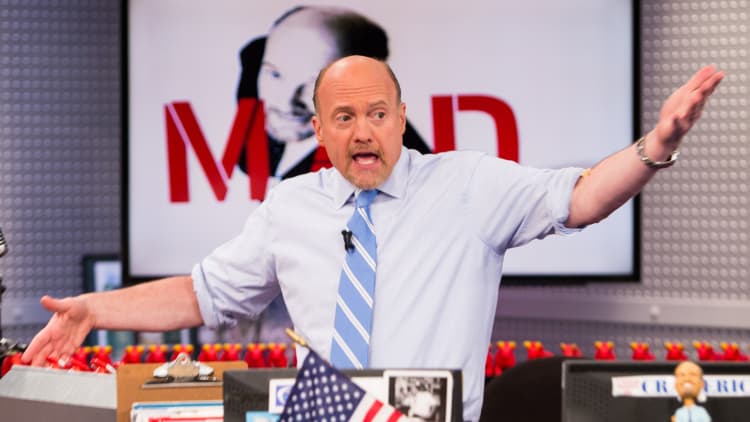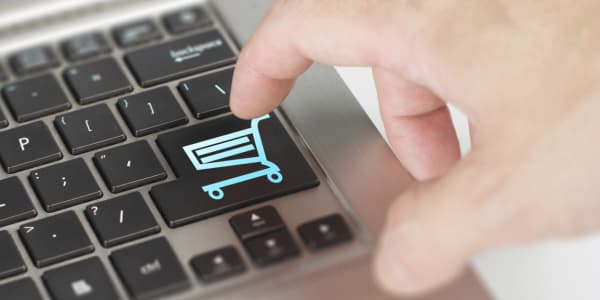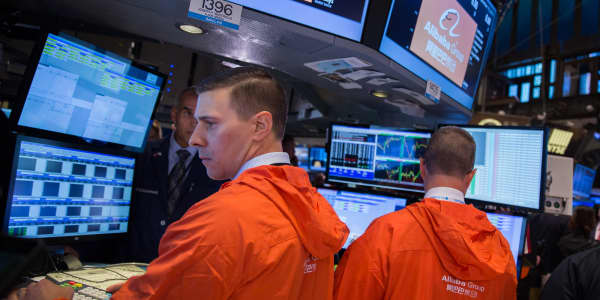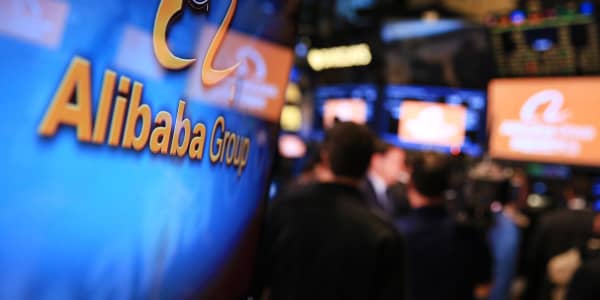As the market fixates on Alibaba and the story that propelled the biggest IPO ever—the rise of the Chinese middle-class consumer—there are other Alibabas in the making—and from the land of Ali Baba, no less.
Geopolitical turmoil in the Middle East, from the civil war in Syria to , means many people assume that the risk to invest in the region is too great. Contrary to what many people might believe, investments in the region have actually grown this year compared to last. Some investors continue to see opportunities: a rapidly growing middle-class market that continues to buy, along with some fast-growing online businesses that have figured out how to operate even amid the turmoil, with the ultimate goal of securing lucrative market exits.
Souq.com, a large e-commerce hub, is a poster child for the investing going on in the Middle East. The Dubai-based company last spring attracted $75 million from South African media giant, Naspers. The investment was a milestone for the region, and it gave the 1,000-employee company a reported valuation of $500 million. Tiger Global's venture-capital arm, led by Lee Fixel and Scott Shleifer, is also an investor in the rapidly growing company.
Last year, when Egypt was in a state of emergency and under curfew, the team at Souq.com's Egypt operations kept working, the sellers kept selling, and perhaps most importantly, people kept buying.
Except for a few days of Internet outage during the ouster of Islamist President Mohammed Morsi, Souq operated smoothly, said Ronaldo Mouchawar, the company's CEO. Employees felt a sense of pride at keeping deliveries consistent.
"People look at the Middle East and they write it off," he said. "But people here are hungry to overcome that (the stereotype of a violence-plagued region)."
Security concerns may fuel e-commerce growth, said Ahmed Alkhatib, founder of MarkaVIP, a four-year-old Amman, Jordan-based luxury retailer similar to Gilt Groupe. "We may do better as an e-commerce company if security becomes an issue," he said. "They can shop online without going out."
Read MoreWhy Alibaba's $68 is a lucky number
There's a very high population of tech-savvy, brand-savvy consumers that are looking for access to goods and services. As they get broadband, as they get smartphones, it'll grow more.Martin Gedalingeneral partner of San Francisco-based venture capital fund Lumia Capital

The growing e-commerce market is one sign of the emerging middle class in the Middle East. It grew by almost 30 percent to reach $11.2 billion in 2013, according to a report by eBay's PayPal. The size of the average e-commerce baskets, which are larger than in other markets, also hint at untapped potential. Entrepreneurs at several e-commerce companies report that the amount spent during a purchase session was well over $100 and sometimes as much as twice the typical U.S. basket of $70 to $80.
The number of Internet users climbed from 95 million to 110 million between 2011 and 2012. Meanwhile, the rapidly expanding use of credit and debit cards and the common language—there are 350 million Arabic speakers—are also enabling fast growth, especially among e-commerce companies.
"There's a very high population of tech-savvy, brand-savvy consumers that are looking for access to goods and services. As they get broadband, as they get smartphones, it'll grow more," said Martin Gedalin, general partner of San Francisco-based venture capital fund Lumia Capital. Founded in 2011 by Chris Rogers, a co-founder of Nextel Communications, the firm specializes in software companies operating in emerging markets.
The pace of growth is expected to continue. The number of e-commerce shipments in the region doubled from 2012 to 2013, according to publicly held shipping company Aramex, which ships throughout the region and is forecasting similar growth rates in the next two years. It's installing lockers, a communal drop-off point for shipments, which makes e-commerce easier in a region where addresses can be uncertain, said Hussein Hachem, CEO. Fifty will be installed in Dubai by the end of the year. PayPal estimated the e-commerce market would continue growing at double-digit rates and will reach $15 billion by 2015.
Read MoreOh, the power of Alibaba
Private equity investing in the Middle East rose to $251 million in the first half of 2014, already surpassing 2013's $239 million total, according to the Washington, D.C.-based Emerging Markets Private Equity Association (EMPEA).
The numbers don't reflect all the investing in the region, for which it is notoriously hard to get information. For instance, Dubai-based Abraaj Group, a global private equity firm with $7.5 billion in AUM, closed $200 million of deals in Egyptian companies in the first half, compared with none last year, said partner Ahmed Badreldin. Its investments aren't reflected in the EMPEA numbers. The firm, which has 30 percent of its investors from the U.S. and Europe, moved fast to take advantage of low valuations of companies in Egypt as the country returns to stability.
From desert sand to Silicon Valley
Along with private equity, there are American venture capitalists active in the Middle East. Silicon Valley's 500 Startups, for instance, has invested in several Amman-based e-commerce start-ups, including Jamalon and ShopGo, which helps off-line merchants develop an online presence. Both start-ups are seeking to raise A-rounds of funding. Four-year-old Jamalon, which has an average basket size of $110, also counts among its investors Georges Harik, one of Google's first 10 employees, according to Jamalon founder Ala' Alsallal.
Investors in the region need expertise to parse the risks and locate the stable areas in the 22-country region, which includes North Africa, Badreldin said. "We are local," he said, noting that he fields questions about the geopolitical turmoil from just about every potential investor in the private equity firm's funds. "We know the area."
Saudi Arabia and the Gulf States are seen as large, stable markets; Egypt's restored calm has reassured some investors, and there is new interest in Morocco and Tunisia, Badreldin said. A Brookings Institute report projected the middle class, defined as people likely to spend or earn $10 to $100 a day, would reach 341 million in Africa and the Middle East by 2020.
Lumia's Gedalin said he navigates around the region's political turmoil by looking at two factors: where a country is headquartered—Jordan and Dubai are two tech hubs—and where its primary markets are.
"We're always thinking about various geopolitical elements," he said. "If you look at some of the biggest markets in the region, Saudi is a large market; Saudi has been relatively stable. Our companies' operations are largely based in Dubai and Jordan; they've been relatively stable."
Investors active in the region tend to be those with long time horizons—Tiger Global's funds have a 10-year horizon, for instance—or those that, like Lumia, specialize in emerging markets. Lumia's investments are typically in the $5 million to $8 million range.
The next Alibabas
A few e-commerce companies, including Souq and MarkaVIP, are beginning to navigate the tricky waters toward exits.
The 500-employee MarkaVIP has raised $20 million so far from investors who also include New York City-based Invus Financial Advisors, said Alkhatib, who worked on Zazzle, a hot e-commerce start-up that specializes in customized brand products, before he left to found MarkaVIP. He was drawn to open a company by the potential wealth he knew existed in the region.
Both Souq and MarkaVIP are seen as possible IPO candidates, though Naspers, which invested in Souq, is a holding company. Aramex trades on the Dubai Financial Market; the London Stock Exchange or the NASDAQ are other possibilities. Souq's Mouchalder is a veteran of Maktoob, the Internet portal purchased by Yahoo! in 2004 and, coincidentally, one of the biggest winners in the Alibaba offering due to its stake. Tiger Global was also an investor in Maktoob.
If big exits do start to happen, the investors who were early in and withstood the barrage of negative news stand to reap major rewards. Political risks tend to hold valuations down, said investors, but that may mean bigger payoffs in the end.
—By Elizabeth MacBride, special to CNBC.com






